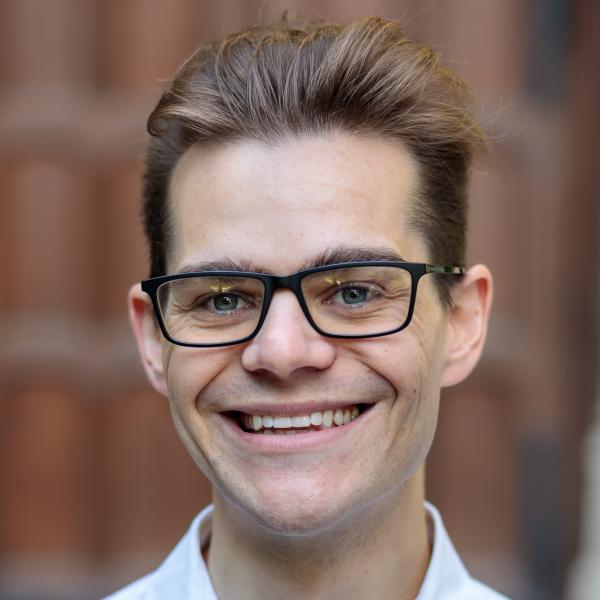
Thomas Pendlebury's principal research interests are in the theoretical and practical philosophy of Kant and its connection to early modern European philosophy and post-Kantian German idealism. He is especially concerned with the character of Kant's positive projects in the critical period, the expression of the constitution and prosecution of these projects by the expository structure of his critical works, and the conception of philosophy which these works exemplify. His teaching interests extend to the history of western philosophy in general.
Pendlebury joined the Department in July 2023. From 2021 to 2023 he was Assistant Professor of Philosophy at the University of Pittsburgh. He received his PhD in Philosophy from Harvard University.
Selected Publications
The Shape of the Kantian Mind (Philosophy and Phenomenological Research, 2022)
The Real Problem of Pure Reason (European Journal of Philosophy, 2022)
Related Courses
PHIL 26000 History of Philosophy II: Medieval and Early Modern Philosophy
A study of conceptions of the relation of the human intellect to reality in medieval and early modern Europe. Figures studied include Aquinas, Duns Scotus, Descartes, Elisabeth of the Palatinate, Conway, Locke, Leibniz, Hume, and Kant.
Completion of the general education requirement in humanities required; PHIL 25000 recommended.
PHIL 56910 Kant’s Transcendental Dialectic
A study of the Transcendental Dialectic of Kant’s Critique of Pure Reason. (IV)
PHIL 24261/34261 Kant’s Ethical Theory
A study of the moral philosophy of Immanuel Kant as presented in his Groundwork of the Metaphysics of Morals, Critique of Practical Reason, Metaphysics of Morals, and Religion Within the Boundaries of Mere Reason. (A) (IV)
PHIL 26000 History of Philosophy II: Medieval and Early Modern Philosophy
A survey of the thought of some of the most important figures of the period from the fall of Rome to the Scottish Enlightenment. The course will begin with an examination of the medieval hylomorphism of Aquinas and Ockham and then consider its rejection and transformation in the early modern period. Three distinct early modern approaches to philosophy will be discussed in relation to their medieval antecedents: the method of doubt, the principle of sufficient reason, and empiricism. Figures covered may include Ockham, Aquinas, Descartes, Avicenna, Princess Elizabeth, Émilie du Châtelet, Spinoza, Leibniz, Abelard, Berkeley, Hume, and al-Ghazali.
Completion of the general education requirement in humanities required; PHIL 25000 recommended.
PHIL 50208 Kant’s Ethics
In this course we will read, write, and think about Kant's ethics. After giving careful attention to the arguments in the Second Critique, portions of the Third Critique, the Groundwork of the Metaphysics of Morals, the Metaphysics of Morals, and several other primary texts, we will conclude by working through some contemporary neo-Kantian moral philosophy, paying close attention to work by Christine Korsgaard, David Velleman, Stephen Engstrom, and others. (IV)
PHIL 27500/37500 Kant’s Critique of Pure Reason
This will be a careful reading of what is widely regarded as the greatest work of modern philosophy, Immanuel Kant's Critique of Pure Reason. Our principal aims will be to understand the problems Kant seeks to address and the significance of his famous doctrine of "transcendental idealism". Topics will include: the role of mind in the constitution of experience; the nature of space and time; the relation between self-knowledge and knowledge of objects; how causal claims can be justified by experience; whether free will is possible; the relation between appearance and reality; the possibility of metaphysics. (B) (IV)
PHIL 26000 History of Philosophy II: Medieval and Early Modern Philosophy
A survey of the thought of some of the most important figures of the period from the fall of Rome to the Scottish Enlightenment. The course will begin with an examination of the medieval hylomorphism of Aquinas and Ockham and then consider its rejection and transformation in the early modern period. Three distinct early modern approaches to philosophy will be discussed in relation to their medieval antecedents: the method of doubt, the principle of sufficient reason, and empiricism. Figures covered may include Ockham, Aquinas, Descartes, Avicenna, Princess Elizabeth, Émilie du Châtelet, Spinoza, Leibniz, Abelard, Berkeley, Hume, and al-Ghazali.
Completion of the general education requirement in humanities required; PHIL 25000 recommended.
PHIL 57502 Finite Knowledge in the Critique of Pure Reason
A consideration of the positive part of Kant’s Critique of Pure Reason as the reflective investigation of the human capacity for empirical knowledge and as the advancement, under the title of transcendental idealism, of a conception of metaphysics as the science of the object of that capacity as such, with attention to alternative interpretive possibilities. (IV)
PHIL 28202/38202 Hegel’s Phenomenology of Spirit
A study of Hegel’s Phenomenology of Spirit and its topics, including knowledge, self-consciousness, desire, culture, morality, religion, art, and the character of phenomenological investigation. (B) (IV)
